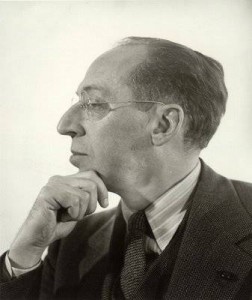On Sunday I’ll be running the Santa Clarita Half marathon. For this particular race I won’t be raising money for the Cystic Fibrosis Foundation, I’ll merely be challenging myself to see if I can run the entire 13.1 miles without having to stop and walk. Of course, anytime I enter a race I can’t help but draw motivation from my past races in which I actually was fundraising. The inspirational music I listen to while running can all be tied to Julie, Sophie and Jacob and to hopeful thoughts that a cure for my son is on the horizon.
I won’t be raising money for the Cystic Fibrosis Foundation, I’ll merely be challenging myself to see if I can run the entire 13.1 miles without having to stop and walk. Of course, anytime I enter a race I can’t help but draw motivation from my past races in which I actually was fundraising. The inspirational music I listen to while running can all be tied to Julie, Sophie and Jacob and to hopeful thoughts that a cure for my son is on the horizon.
This go around I’m trying something different. For the final two miles, I’ll have Aaron Copland’s Appalachian Spring play in its entirety to help push me through to the end. I figure that if I need something to distract me for the final half hour of the run there’s no better way than Copland’s 25 minute masterpiece.
Appalachian Spring is a ballet score that Copland was commissioned to write for Martha Graham. It’s working title was ”Ballet for Martha. “ Graham found a phrase in a Hart Crane poem that she liked and thus, the ballet became Appalachian Spring. Premiering in October of 1944, the ballet and score were enthusiastically received by critics and audiences. The following year Copland was awarded the Pulitzer Prize for his score. Originally composed for a thirteen member chamber orchestra, in 1945 Copland arranged a full orchestra suite, which is how Appalachian Spring is mostly heard today.
The ballet’s story centers on a small group of Pennsylvania pioneers in the 1800’s. A newlywed couple, their neighbor, a preacher and his followers celebrate after the completion of building a farmhouse. To get a full understanding of the ballet, I would suggest viewing it, as you can at this Youtube link, or you can read about it in Howard Pollack’s excellent biography of Aaron Copland, published in 1999.
Although my father always had Cleveland’s classical station, WCLV, playing (loudly) in the car whenever he drove, I never developed a strong affinity for orchestra music. However, I loved Copland’s work. Once, in the 11th grade, my English teacher asked me what great composers I liked. I believe she expected me to be well schooled in the masters because my dad was a band director. I quickly named Copland and my English teacher, a woman I liked and respected, scoffed at the notion that Copland was really classical. His music was too ”contemporary.” I resented her reaction. If it wasn’t for Copland, I’d probably have no interest in any sort of orchestra music besides the scores to my favorite films. Actually, if you listen closely to most modern westerns or a lot of John Williams music, you can hear the Copland influence.
The first of his major pieces that I discovered was Fanfare for the Common Man, and later, Rodeo. ”Corral Nocturne,” the second movement from Rodeo, became one of my most listened to pieces of music during the depressed winter of my senior year of high school. Holed up in my parents basement, heartbroken and feeling that no one understood me, I’d sit in the yellow rocker and absorb the beautiful music. Oh, the drama.
It wasn’t until the mid 90’s, after Julie and I moved out west, that I finally listened to Appalachian Spring in its entirety. During long periods in my car, running errands as a production assistant, the best way to keep my mind off of the monotonous log jam of traffic, the unbearable heat and my self doubt was through long form music. There are times when the only way to maintain the hope of professional success and the personal dreams of a house and children is through music. Now that we’ve achieved some of those dreams, I still turn to Appalachian Spring for the inspiration to be a better person and the hope that there will always be a light at the end of the tunnel.
This Sunday, when I’m in need of a final reminder of why I began running again seven years ago- for my son’s future- Copland’s triumphant music will carry me to the end. As the finish line draws closer and I can hear the crowd screaming, I’ll look for the faces of my family, cheering for me. The final strains of ”Simple Gifts,” from the 7th movement of Appalachian Spring, will push me, giving my legs one final burst of energy and my lungs the breath I need to get me home.
Aaron Copland and the London Symphony Orchestra – Appalachian Spring – 1. Very Slow
Aaron Copland and the London Symphony Orchestra – Appalachian Spring – 2. Fast
Aaron Copland and the London Symphony Orchestra – Appalachian Spring – 3. Moderato
Aaron Copland and the London Symphony Orchestra – Appalachian Spring – 4. Fast
Aaron Copland and the London Symphony Orchestra – Appalachian Spring – 5. Still Faster
Aaron Copland and the London Symphony Orchestra – Appalachian Spring – 6. As At First (Slowly)
Aaron Copland and the London Symphony Orchestra – Appalachian Spring – 7. Calm & Flowing
Aaron Copland and the London Symphony Orchestra – Appalachian Spring – 8. Moderato: Coda





Comments